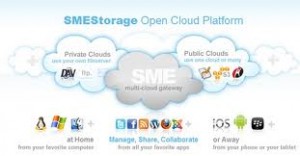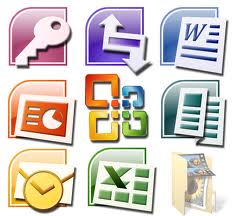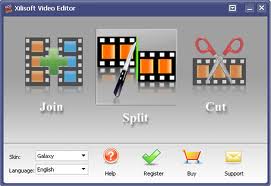March 22nd, 2011 — Briggs Chapters Tagged Briggs, Briggs ch. 9, Data-driven journalism, programs, software
Organizing your digital life was the focus of this chapter. There are many free or trial programs that can help you organize your digital self. Since these programs are online, they are easily edited and can be accessible to others.

The Cloud
Some examples:
- Backpack
- Zoho
- MS Office Suite (Outlook, etc)
- Dropbox
- Basecamp
Databases are helpful in for news organizations because they allow their readers to have easy access to certain material. Charticles are also another way to please data-hungry readers. Readers like to see the trends and the information can allow journalists to see trends they might have missed.
Maps and spreadsheets are also helpful for many of the same reasons.

MS Office
March 22nd, 2011 — Briggs Chapters Tagged news, story, Video, video editing, video storytelling, video storytelling tips

Camera
Video storytelling was the concept of this chapter. Now anyone can use the digital equipment around them to create video storytelling, it just takes a lot of practice. Thanks to YouTube, the quality of the video doesn’t have to be very high. What’s important is authenticity.
The most entertaining videos get re-posted over and over. The New York Times’ David Pogue creates videos to follow this entertaining format. However, they are also very high quality.
Just as entertaining is Walt Mossberg’s videos for “The Wall Street Journal”.
Tips for video storytelling:
- Be comfortable with the equipment before you start.
- Pick the right approach for the project — breaking news/highlight clips or documentary-style.
- Organize your story in a storyboard, if possible.
- Take a variety of shots but not at the same time.
- Prepare before you interview (pick the right environment, pre-write questions, etc.).
- Don’t buy more camera than you need.
- Give your best material and keep it short.
- Avoid zooming in and out to get shots, instead hold the shot for 15 seconds then stop recording. Record after you have adjusted to the next shot.
- Wireless mics can help when capturing interviews, built-in mics are good for environmental sound.
- The editing process can be helpful because you see what you need to improve on and if you need to reorganize.
- Many computer already come with preloaded video editing software but you can always buy more,
- Certain sites, like YouTube, will compress your video and then post it.
- FTP sites allow you to email larger files.
- Viral distribution is a goal, sites like tubemogul help to spread your videos.

Video Editing
March 10th, 2011 — Blog Item Tagged Mindy McAdams, story, Teaching online journalism, tech blog post

Teaching Online Journalism
Finding the story is the reminder this post intends for its readers.
“I think that in the process of teaching them reporting, we may kill their instinct for finding and telling real stories,” McAdams said on her post.
I agree with her statement. I know some journalism students are just too worried about getting all the facts right. That’s all they end up focusing on.
We’re taught to get the story, but not necessarily how to evaluate if it is actually a story. Many times once we’re given an assignment we say we don’t have any ideas for stories. I suppose since today the world is so fast-paced, we don’t take time to think about what’s really there.

News
March 8th, 2011 — Blog Item Tagged C-SPAN, CBS, Dan Rather, distance learning, tips for young journalists, Tucker Carlson
Dan Rather, a former CBS Evening news anchor and current host of Dan Rather Reports, was in a C-SPAN video conference with students from George Mason University, University of Denver, Purdue University and Georgetown University on February 24, 2011.

Dan Rather
Rather commented on his 50-plus-years in journalism, a career that includes coverage on pivotal American news events such as the Kennedy assassination, Watergate, the Civil Rights Movement and September 11, 2001.
Tips to young journalists from Rather:
- “Curiosity, relentless determination and the ability to write well and quickly [makes a good reporter].”
- “Nothing matters at the moment but the story you’ll have time for your emotions later on.”
- “American journalism needs, in many ways, a spine transplant. We’ve lost some of the grit in our gut, we’ve lost some of our courage.”
- “[American Journalism should be] part of a system of checks and balances on power, not to be just a conduit for what power says is happening.”
- Social media can be good and bad. It can help against dictatorships but it can also be used by those governments.
- Keep facts and fiction separated, especially with the vast amount of information that comes out from social media.
- There isn’t a business model for online journalism but the old model isn’t working.
Tucker Carlson, co-founder and editor-in-chief of The Daily Caller, also joined the conference. “The best journalism is tough and it pays no regard to authority and it does not suck up to power,” Carlson said.

Tucker Carlson
Carlson also pointed out something that all journalists should keep in mind.
“Journalism is not complicated,” said Carlson. “It’s a process of finding out what happened and repeating it to your viewers, listeners or readers. It’s a trait, not a profession.”
March 1st, 2011 — Briggs Chapters Tagged Briggs, Briggs chapter 10, ch. 10, Doug Feaver, interactive journalism, online news
Interactive discussion and online news was the focus of this chapter.

Comments
Responding to comments can help journalists seem transparent but many journalists are reluctant to do so because some comments are personal attacks.

Angry Comments
One journalist — Doug Feaver, former editor at washingtonpost.com, has created a blog, dot.comments, on the Washington Post’s website that responds to reader comments. Some of the site has even been a resource for articles.
Participating in the conversation helps journalists to stay technologically up-to-date and allows them to have access to more sources. But journalism standards and values need should be upheld online and in social media. Many journalists are creating blogs or Facebook pages to respond to reader comments.
There are even some online journalism social networks:
Many online news sites have rules regarding social media. These often include:
- Setting guidelines for participants
- Being careful who you expand your network to
- Monitoring offensive posts
- Knowing legal responsibilities
- Correcting errors

Social Networking Sites










